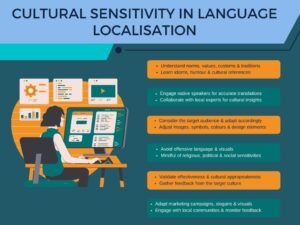In an increasingly interconnected world, understanding cultural nuances is key to successful marketing, especially in diverse markets like Africa. Selly Africa, an ecommerce platform, offers a unique opportunity for businesses to tap into the rich tapestry of African cultures and consumer behaviors. However, to truly resonate with your audience, it’s essential to navigate the intricate cultural landscapes that vary from region to region. In this blog post, we’ll explore essential tips and strategies to help you effectively tailor your marketing efforts, connect with local consumers on a deeper level, and ultimately drive sales in this dynamic marketplace.
Understanding African cultural diversity

Understanding African cultural diversity is crucial for successfully marketing your products on platforms like Selly Africa. The continent is home to more than 1.3 billion people, speaking over 2,000 languages and encompassing a myriad of traditions, customs, and belief systems. This rich tapestry of cultures means that what resonates with one group may not necessarily appeal to another.
To effectively navigate this diversity, it’s essential to conduct thorough research on the specific regions or communities you wish to target. For instance, marketing strategies that work in urban centers like Nairobi, Kenya, may not be as effective in rural areas or smaller towns, where traditions and consumer behaviors can differ significantly. Additionally, understanding the historical context and socio-economic factors that shape consumer preferences will enable you to craft messages that resonate deeply and authentically. In many African cultures, storytelling is a revered tradition. Utilize this to your advantage by weaving compelling narratives around your products that resonate with local experiences and values. This approach not only captures attention but also fosters trust and relatability among potential buyers.
Another critical aspect is recognizing the significance of local languages and dialects. Incorporating local languages in your marketing materials can create a sense of connection and show respect for the culture, making your products feel more relatable. However, it’s equally important to ensure that translations are accurate and culturally appropriate to avoid misinterpretations. For example, if you are selling products in Nigeria, incorporating Pidgin English or local dialects can create a sense of relatability and authenticity. In contrast, targeting customers in South Africa might require a more nuanced approach, given the country’s rich blend of languages, including Zulu, Xhosa, and Afrikaans.
Moreover, be mindful of the diverse religious practices across the continent, as they can influence buying behavior and preferences. For instance, certain products may be more acceptable during religious observances, while others might be avoided altogether.
Cultural sensitivity and localization

Understanding and respecting cultural nuances is paramount for success in African e-commerce. Localization goes beyond mere translation; it involves adapting your products, marketing, and customer service to resonate with the local culture.
Language
- Local language dominance: Prioritize local languages over English, especially in rural areas.
- Dialect considerations: Be aware of regional dialects and linguistic variations.
- Translation accuracy: Employ skilled translators to ensure accurate and culturally appropriate content.
- Bilingual approach: Consider offering content in both English and local languages for broader reach.
Symbols and colors
- Cultural significance: Research the symbolism of colors and images to avoid unintended meanings.
- Religious sensitivity: Be mindful of religious symbols and their interpretations.
- Visual communication: Use imagery that resonates with the local culture and values.
- Avoid stereotypes: Steer clear of generalizations and clichés.
Holidays and celebrations
- Local calendar: Align your marketing campaigns with local holidays and festivals.
- Cultural significance: Understand the meaning and importance of these celebrations.
- Limited-time offers: Create exclusive promotions tied to specific holidays.
- Visual representation: Use culturally relevant imagery in your marketing materials.
Local references
- Celebrities and influencers: Partner with local celebrities or influencers to reach a wider audience.
- Local partnerships: Collaborate with local businesses and organizations to build trust.
- Landmarks and icons: Incorporate well-known landmarks or cultural icons into your marketing.
- Local slang and humor: Use local slang or humor to connect with your audience on a deeper level.
- Customer testimonials: Feature testimonials from local customers to build trust.
Cultural values
- Family and community: Emphasize the importance of family and community in your messaging.
- Respect for elders: Show deference to older generations in your marketing materials.
- Hospitality: Highlight your brand’s commitment to excellent customer service.
- Modesty: Be mindful of cultural norms related to modesty and dress codes.
- Cultural training: Provide cultural sensitivity training for your employees
Building trust through local engagement
Building trust through local engagement is critical when marketing your products on Selly Africa. In a continent as diverse as Africa, establishing a genuine connection with your target audience is key to fostering loyalty and driving sales. Start by immersing yourself in the local culture and understanding the values, traditions, and preferences that shape consumer behavior in different regions. Attend local events, festivals, and markets to engage directly with potential customers and gain firsthand insights into their needs and desires.
Marketing on Selly Africa is not just about transactions; it’s about creating relationships. Engage with the community in meaningful ways and demonstrate your respect for their culture to pave the way for long-lasting customer loyalty and a positive brand reputation. Embrace the richness of local engagement, and let it guide your marketing strategy as you navigate the vibrant landscape of African commerce.
Common cultural pitfalls to avoid
When marketing your products on Selly Africa, understanding and respecting the diverse cultural landscape of the continent is crucial to your success.
- Stereotyping: Avoid making generalizations about entire cultures.
- Cultural appropriation: Respect cultural traditions and avoid using them inappropriately.
- Translation errors: Ensure accurate and culturally appropriate translations.
- Overlooking local competition: Understand the competitive landscape in your target market.
Monitoring and evolving your strategy
In the dynamic landscape of e-commerce, particularly within a diverse marketplace like Selly Africa, monitoring and evolving your marketing strategy is paramount to success. As you introduce your products to various cultures and communities, it’s essential to stay attuned to shifts in consumer behavior, preferences, and emerging trends. Begin by regularly analyzing your sales data and customer feedback. This information will provide insights into what resonates with your audience and highlight areas for improvement.
Utilize analytics tools to track the performance of your marketing campaigns, assessing which strategies yield the best results in different regions or demographic groups. Are your social media ads generating engagement? Is your email marketing reaching the right audience? Evaluating these metrics will refine your approach in real-time, ensuring that your messaging remains relevant and impactful.
Moreover, actively engage with your customer base through social media platforms and community forums. Encourage dialogue and solicit opinions; this will not only help you understand their unique cultural perspectives but also foster a sense of connection and loyalty towards your brand. Don’t hesitate to test new ideas and adapt your products or marketing strategies based on the responses you receive.
Finally, keep an eye on competitors within the Selly Africa marketplace. Observing their successes and challenges can provide valuable lessons and inspiration for your own strategy. The key to thriving in this multicultural environment lies in your ability to remain flexible and responsive to your audience’s evolving needs, ensuring your marketing efforts are as diverse and vibrant as the marketplace itself.
Case studies of successful cultural marketing
Case study 1: Coca-Cola – “Taste the Feeling” campaign
Coca-Cola has been a master of adapting its marketing to resonate with local cultures. The “Taste the Feeling” campaign was a global success, but the brand also localized elements to connect with African consumers. For instance, in Nigeria, the campaign featured local celebrities and emphasized shared moments of joy and togetherness, aligning with the country’s strong sense of community.
Case study 2: Safaricom’s M-Pesa
Safaricom’s M-Pesa is a prime example of a product deeply rooted in African culture. Addressing the challenges of financial inclusion, M-Pesa tapped into a significant market need. The service became more than just a payment method; it integrated into the daily lives of millions, facilitating everything from bill payments to money transfers.
Case Study 3: Unilever’s Omo detergent
Unilever successfully localized its Omo detergent brand to cater to African consumers. Unilever understood the unique challenges of laundry in the region, such as water scarcity and tough stains, and Omo developed products and marketing campaigns that resonated with the target audience. The brand emphasized the product’s ability to deliver clean clothes even in challenging conditions, aligning with the needs of African consumers.
Key takeaways
- Deep cultural understanding: Successful cultural marketing requires in-depth knowledge of local customs, values, and behaviors.
- Localization: Adapt products, messaging, and marketing channels to resonate with the target audience.
- Partnerships: Collaborate with local influencers, businesses, and communities to build trust.
- Customer-centric approach: Put the customer at the heart of your marketing strategy.
- Continuous learning: Monitor market trends and consumer feedback to refine your approach.
